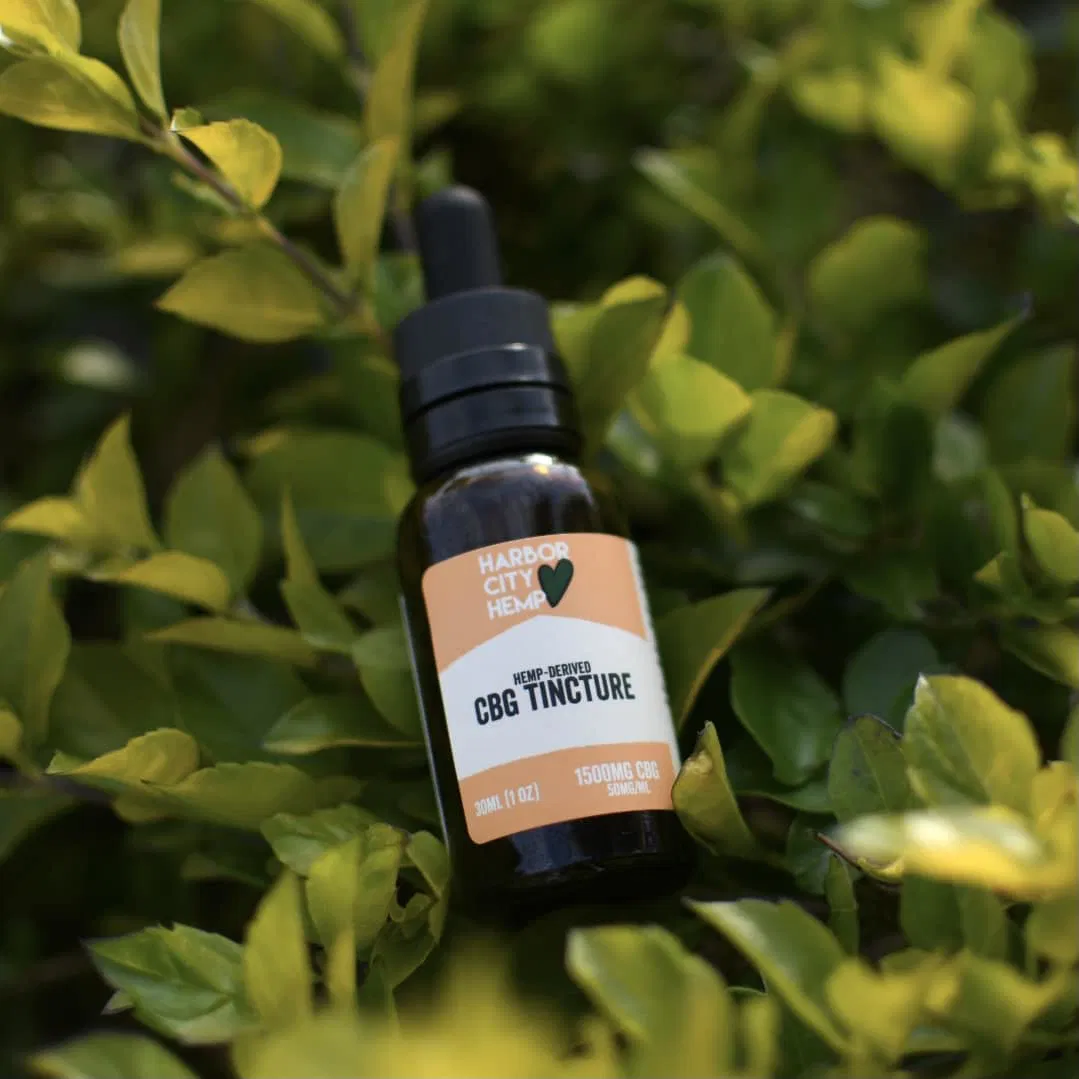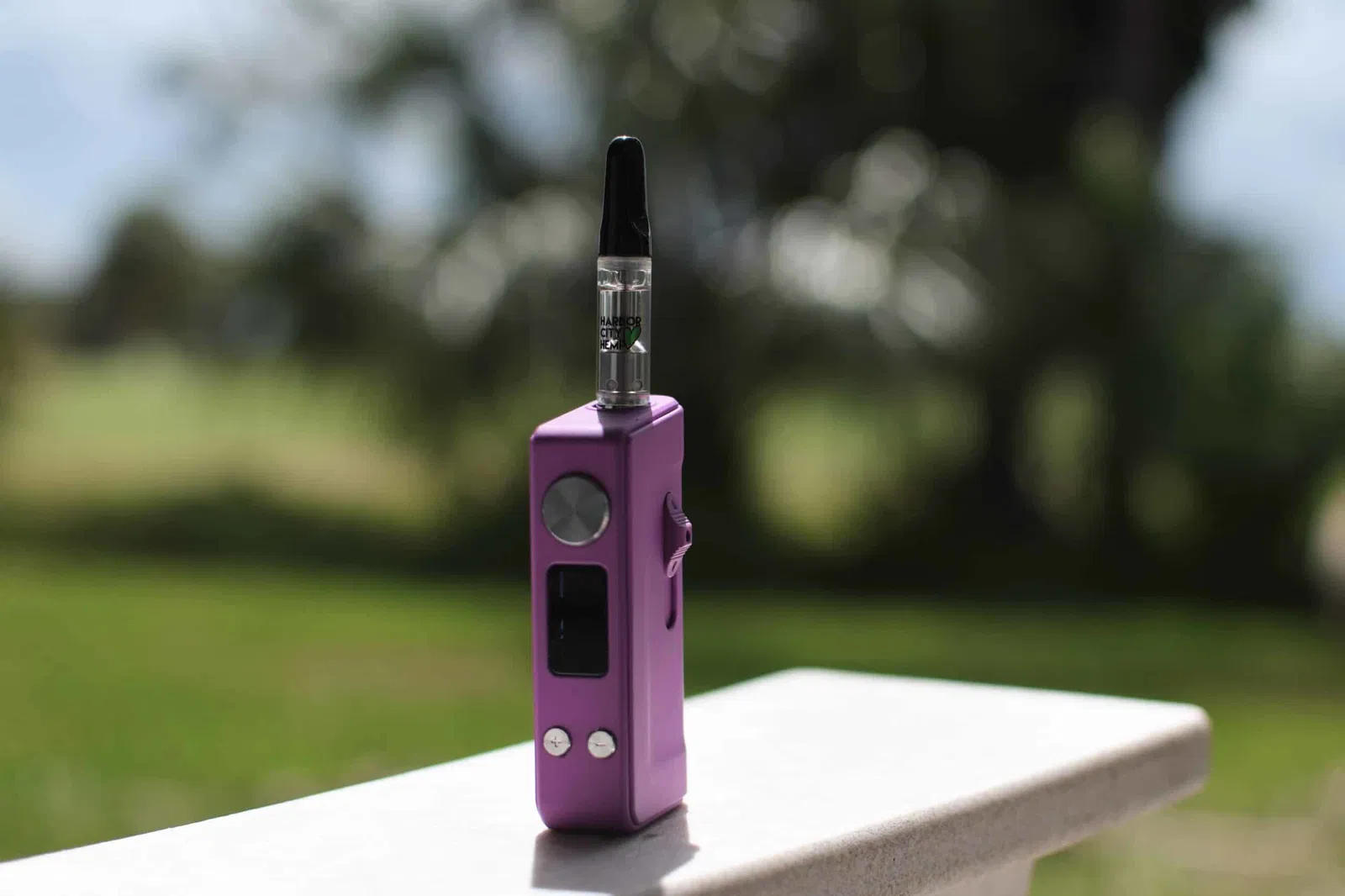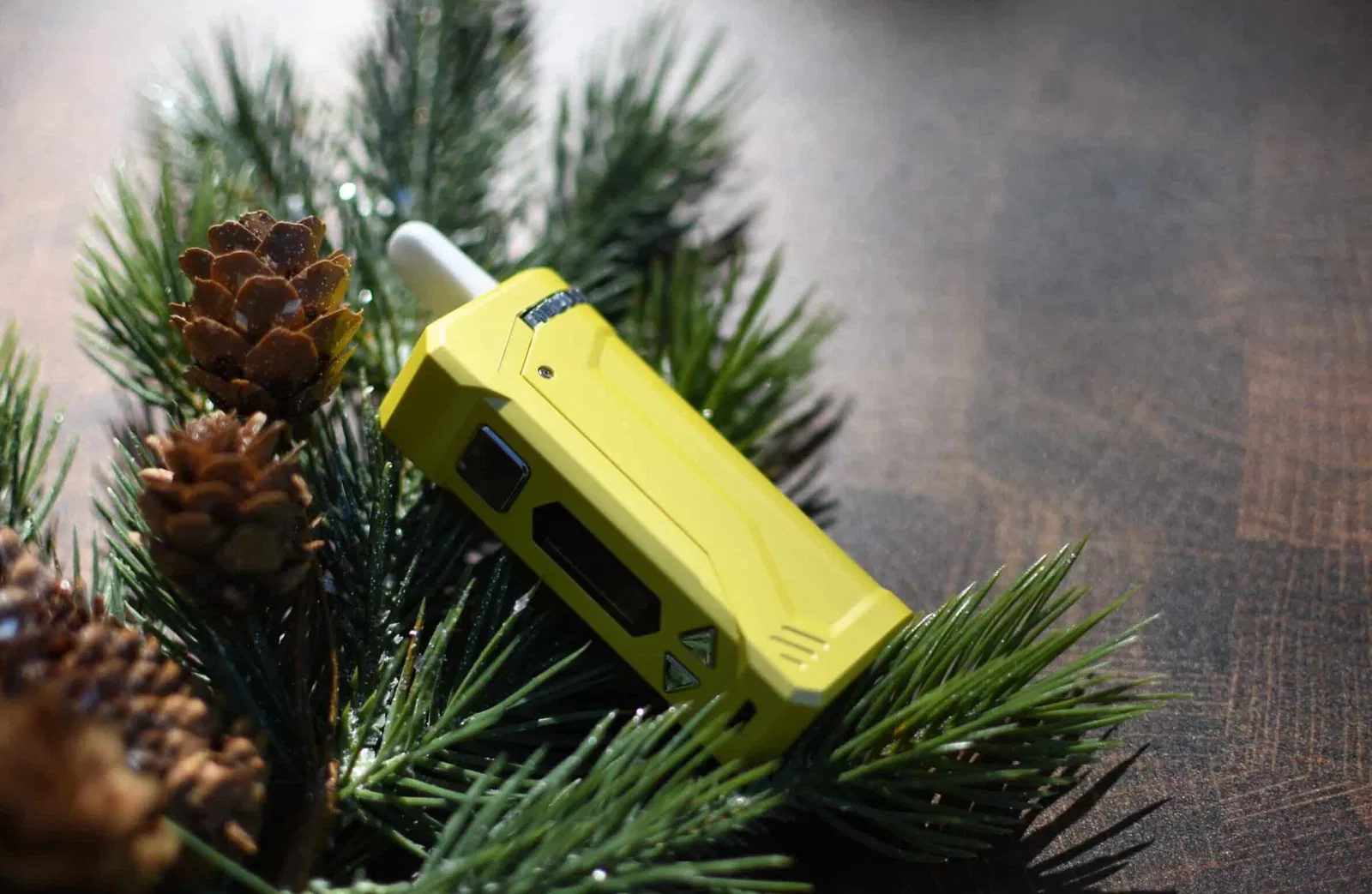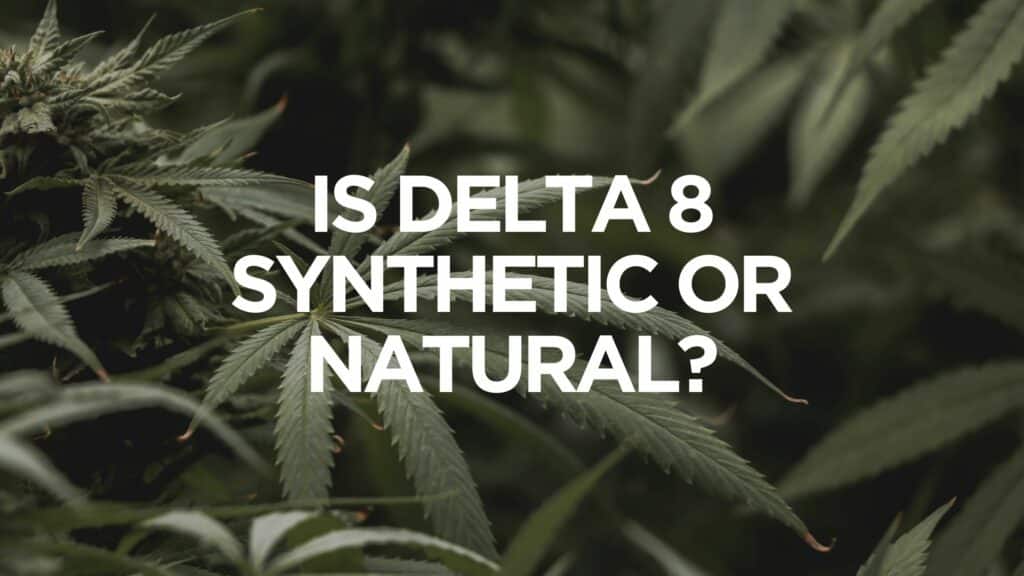For decades now, THC (Delta 9 THC) and CBD have been the more popular cannabinoids. But now, the other minor cannabinoids such as Delta 8 THC, are getting more attention. Unfortunately, a lot of people (which includes some Delta 8 THC users as well) don’t have a full understanding about this compound – they aren’t even sure if it’s natural or synthetic.
It’s a legitimate concern since there are other synthetic cannabinoids that have been identified as highly dangerous. So now it’s only fitting to clear the air regarding Delta 8 THC – its legality, effects, and how it stacks up compared to other cannabinoids.
But first, we have to get to know Delta 8 THC a lot better so that you can understand better the concern regarding it being synthetic or not.
What is Delta 8 THC?
Delta 8-THC, which is short for the scientific name delta 8-tetrahydrocannabinol,
is a cannabis compound similar to Delta 9 THC, which is the main compound in cannabis that gives one that “high” feeling. These compounds interact with our body’s endocannabinoid system.
It causes the popular effects associated with cannabis – happiness, euphoria, sedation, pain relief, and many more. Majority of cannabis strains have large amounts of THC. Taking Delta 8-THC can give you the effects that are just like those of Delta 9 THC, although in less potent amounts.
Structurally, Delta 8 THC has a double bond at the eighth position on the carbon chain. Meanwhile, Delta 9 THC’s double bond is at the ninth position.
How Is Delta 8 THC Different From “Normal” THC?
Delta 8 THC delivers effects that are similar to those of Delta 9 THC, which are psychoactive in nature. The difference is that Delta 8’s effects are less potent than Delta 9’s. This makes it a good choice for those who are seeking the popular benefits of THC, but minus the heavy high, which can result in anxiety or paranoia in some users.
Another difference is the legality. The U.S. generally prohibits THC in most states, but Delta 8 THC is still legal in the majority of the areas across the country.
What Are Synthetic Cannabinoids?
Before we discuss if Delta 8 THC is a synthetic cannabinoid, we should know exactly what a synthetic cannabinoid is. Perhaps you have heard of the slang terms “K2” and “Spice”? These refer to synthetic cannabinoids and they are already being used in the cannabis community. Cannabis enthusiasts just use these terms more colloquially when talking about synthetic cannabinoids.
These synthetic chemical compounds are produced in the laboratory and they can copy the properties of natural phytocannabinoids – these are cannabinoids that are derived from hemp or marijuana. The results are nearly the same as those of real cannabinoids
As for their effect on the human body, the “spices” work similarly as the natural ones. Both bind to the same cannabinoid receptors, which is why the synthetic can simulate the effects of the natural variety to a considerable extent.
What’s raising eyebrows is the legal status of these laboratory-made varieties and how they are being marketed as “marijuana” despite their synthetic nature. Compared to natural alternatives, synthetic cannabinoids are said to have higher mood-altering effects and are not totally safe.
So Is Delta 8 THC Natural?
Delta 8 THC is contained in marijuana and hemp plants, no human intervention involved. Such it’s a natural compound, a wholly natural cannabinoid and therefore cannot be classified as synthetic.
So why is it often confused for a synthetic cannabinoid? Delta 8 THC is only found in small quantities in cannabis plants. A special process is needed in order to get a consumable amount. The most common process of making Delta 8 THC involves the extraction of cannabidiol (CBD) from hemp plants that are federally legal. These are then converted into Delta 8 THC through acid conversion.
The concentration of CBD in hemp is far more than that of Delta 8 THC. So using this process, manufacturers can extract a high yield of Delta 8 THC, thus making the production make sense financially.
So even if the production process of Delta 8 THC requires human interaction in order to generate as much as possible, the compound is still considered a non-synthetic cannabinoid, given that it naturally exists in the cannabis plant.
Enjoy the effects of cannabis minus the overwhelming high that THC brings. Get your safe and reliable supply from Harbor City Hemp DELTA 8 PRODUCTS.
What Is the Difference Between Delta 8 THC and K2/Spice?
Understandably, there’s concern about the effects of Delta 8 THC in relation to synthetic cannabinoids, particularly K2 and Spice. These names are assigned to synthetic cannabinoid blends that have potentially dangerous, highly psychoactive chemicals.
These cannabinoids interact with the body’s cannabinoid system, just like Delta 9 THC, Delta 8 THC, and CBD. But these cannabinoids bind more strongly and readily with CB1 and CB2 receptors, creating a more intense high. This results in a more intense high effect.
The most notable difference between Delta 8 THC and K2/Spice is that the former is a naturally occurring cannabinoid, while the others are synthetic, meaning they are not found in cannabis plants at any point in time.
So Delta 8 THC, along with Delta 9 THC, Delta 10 THC, CBN, CBD, and the rest, share very similar chemical structures and are considered as “classical cannabinoids”.
This means that the synthetic cannabinoids in K2, Spice, and others of this kind are non-classical cannabinoids. Their chemical structures are completely different from conventional cannabinoids such as THC and CBD.
Again, legality is another telling difference. Delta 8 THC is approved for use in most states, with only some minor restriction on the federal level. Synthetic cannabinoids such as K2 and Spice are totally illegal to possess, use, and sell throughout the U.S. and in most countries.
It should be noted though that the effects, good or bad, of Delta 8 THC, K2, and Spice totally vary and that effects and user experience can become unpredictable.
What Are the Effects of Delta 8 THC?
The safety of consuming Delta 8 THC is much talked about, as with all cannabinoids. Indeed, Delta 8 THC does have some undesirable side effects for some users.
These effects are just like those in Delta 9 THC and are likely to be felt when the cannabinoid is taken in larger doses. Some of the most common effects of Delta 8 THC are:
- Reduced stress and anxiety
- Relaxation or mild sedation
- A minor psychoactive effect
- Euphoria
And the common side effects are:
- Dry mouth (“cotton mouth”)
- Red eyes
- Dizziness
- Sedation
- Intoxication (similar to THC)
- Increased appetite
What Are the Effects of K2/Spice?
Synthetic cannabinoid blends such as K2 and Spice are usually sprayed on the cannabis flower in order to produce the compounding effects. The problem is that blends are totally unregulated and they often have harmful additives that can prove lethal to the user.
Also, the chemicals included in K2 and Spice usually have stronger effects on the cannabinoid system and could be highly addictive. This results in psychoactive effects that can become double times more potent than those commonly associated with Delta 8 THC and other natural cannabinoids.
These problematic effects are what caused these synthetic cannabinoids to get banned in the U.S, and a lot of other countries.
K2 and Spice have these common effects:
- Euphoria
- Intense psychoactive effects
And these are the side effects, which can prove potentially dangerous:
- Headaches
- Confusion
- Dizziness
- Vomiting
- Irritability
- Anxiety
- Depression
- Hallucinations
- Violent behavior
- Suicidal thoughts
- Psychosis
- Delusions
- Seizures
- Intense sedation
- Difficulty breathing
- Increased heart rate
- High blood pressure
- Stroke
- Heart attack
- Kidney damage
- GI complications
- Muscle damage
- Death
As you can see, the side effects here are definitely more plentiful compared to those of Delta 8 THC.
Synthetic Cannabinoids VS Natural Marijuana
You have to look at the overdose effects of each to better understand the difference. An overdose of the synthetic form is so different from the overdose effects of the natural variety, which says a lot about the difference between the general composition of the two. When you overdose on synthetic cannabinoids, the effect is very much like going overboard on harder drugs, with much more serious effects on your body.
However, it should be pointed out that synthetic cannabinoids and natural marijuana work similarly on the body. Both contain substances that bind to your brain’s cannabinoid receptors after you smoke them. That’s where the similarities end though. Also, because the synthetic variety is so potent, you can have a strong effect with just a little of it. This means dose control can become problematic.
Since Delta 8 THC is a natural cannabinoid that appears in marijuana and hemp plants, you can rest your mind easy knowing that it’s legal, natural, and safe for consumption. Most of the Delta 8 THC products in the market today are derived from CBD extracted from hemp plants.
Understandably, it has become popular as an alternative to THC. Since it’s considered an analog of delta 9 THC, Delta 8’s psychoactive effects are milder for most users. Compared to the effects of Delta 9, Delta 8 poses less anxiety and paranoia and more relaxation for the user.
Delta 8 THC is federally legal in most US states. It’s also considered safer for consumption than K2/Spice, which are synthetic cannabinoids. What you will get here is a milder sense of euphoria and less of the side effects.
If smoking is not your thing, then taking edibles is a great way to enjoy the benefits of Delta 8 THC. Try our line of Harbor City Hemp DELTA 8 EDIBLES.
Delta 8 THC: Frequently Asked Questions
No schema found.Find Harbor City Hemp in a Store Near You
Harbor City Hemp was founded in Melbourne, FL by two engineers that are passionate about hemp. The store’s mission is to provide high-quality and affordable hemp products to the local community and customers across the United States.
Speaking of affordability, Harbor City Hemp has recently updated the conditions and terms of our discount program, to better streamline the experience for you, the customer. Please contact the store for more details on how to enroll, the updated discounting, and what documentation will be required to be accepted into the program.
Customer support is available Monday – Friday between 9am and 5pm EST and typically replies within 48 hours. Of course, you can always visit our physical stores. Check out the nearest store that has Harbor City Hemp products.




